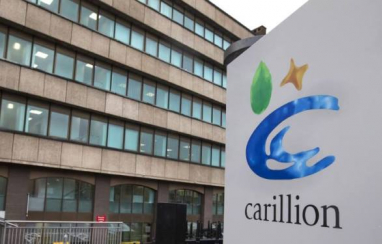- nike dunk armor buy , Cut in half: Nike Metcon 9 Review (2024) , AspennigeriaShops
- IetpShops , 'Teal Nebula' Hues Take This Nike Air Force 1 Out Of This World , jordan nike high jump pants shoes girls boys women
- nike air jordan 1 mid outlet
- womens air jordan 6 barely rose dh9696 100 release date
- IetpShops , adidas Running Spring/Summer 2010 Preview Oscillate & Regulate , Tênis Adidas Originals Nmdr1 Preto Branco
- Air Jordan 1 University Blue 555088 134 Release Date Price 4
- new air jordan 1 high og osb dian blue chill white cd0463 401
- best nike basketball shoes
- air jordan spring 2021 retro collection release date info
- nike air force 1 low white gold dc2181 100 release date info
- Home
- News and analysis
- Info hubs
- Events
- Video
- Case Studies
- About us
- Magazine
- Advertising
Produced for the industry by the Association for Consultancy and Engineering
News
EDITOR’S COMMENT: Carillion is a wake-up call for industry and government
The fall of Carillion must be a catalyst for real and lasting change in the construction industry and to the way that government procures public sector projects, says Infrastructure Intelligence editor Andy Walker.

In most of the analysis and comment following the demise of Carillion, a number of common themes have emerged. Chief amongst them is the almost universal view that the business model for the procurement of major construction and infrastructure projects (and public service contracts) is broken and not fit for purpose.
As Ramboll’s UK managing director Mathew Riley has eloquently pointed out, “Carillion is a victim of an industry business model that doesn’t work. This should be a lesson for the public sector and how it procures because transferring risks to the private sector in an industry that operates on wafer-thin margins was an accident waiting to happen.”
Strong words, but Riley is absolutely spot on in his analysis. A perfect storm of ever-tightening, already slender profit margins, under-bidding for projects, negative cashflows, poor management and highly dubious (to put it kindly) government oversight of its public sector procurement regime, has led to the UK’s second largest construction firm hitting the buffers.
Let’s be under no illusions here - this is a seminal moment for both business and government. It is surely a wake-up call that should bring about much-needed and long-awaited major structural change in the construction industry. Unsurmountable challenges of low profitability and negative cashflows in the contracting sector confirm that the current procurement process is broken. A new business model, combined with client leadership, is now urgently required to ensure that the industry is fit for the future and also to prevent similar difficulties with other major players.
"There will no doubt be a vigorous public and political debate about these important issues. It is a debate that the infrastructure sector needs to be fully engaged in because, regardless of how major infrastructure is financed and organised, it will be construction companies, large medium and small, that plan and deliver the work."
The government also needs to take a long, hard look at the way it procures public sector work and have a much better understanding of the risks that it is seeking to manage and also the risks that it is seeking to share or transfer to the supply chain. Current and previous received wisdom has been to transfer as much risk as possible to the private sector. It now appears that the government as a client might have been better advised to take on some of that risk themselves, as they may have been transferring risks that they shouldn’t have.
Carillion's plight shows that there are clearly some risks that simply cannot and should not be transferred to the private sector. Risk needs to be appropriately allocated to those organisations best able to manage it and given that on many major projects government is responsible as the ultimate client, then that fact ought to colour their thinking and approach.
So, there will need to be lessons learned about how the government conducts its large scale public procurement. Those lessons will certainly be on the political timetable given that there is no longer a cross-party consensus on how to finance and deliver public procurement. There will no doubt be a vigorous public and political debate about these important issues and that is a good thing. It is a debate that the infrastructure sector needs to be fully engaged in because, regardless of how major infrastructure is financed and organised, it will be construction companies - large, medium and small - that plan and deliver the work.
The industry also needs to ensure that the collapse of Carillion leads to real changes in the way that public projects are procured and indeed other projects too. For public procurement especially, clients, public sector organisations, government and the supply chain, need to work out a more sustainable and collaborative business model going forward that can appropriately manage risk and deliver projects.
Construction faces a number of endemic industry problems like low bidding, payment delays, poor procurement procedures and wafer-thin margins. Carillion’s collapse should be a catalyst to address these issues properly and once and for all.
Andy Walker is the editor of Infrastructure Intelligence.





